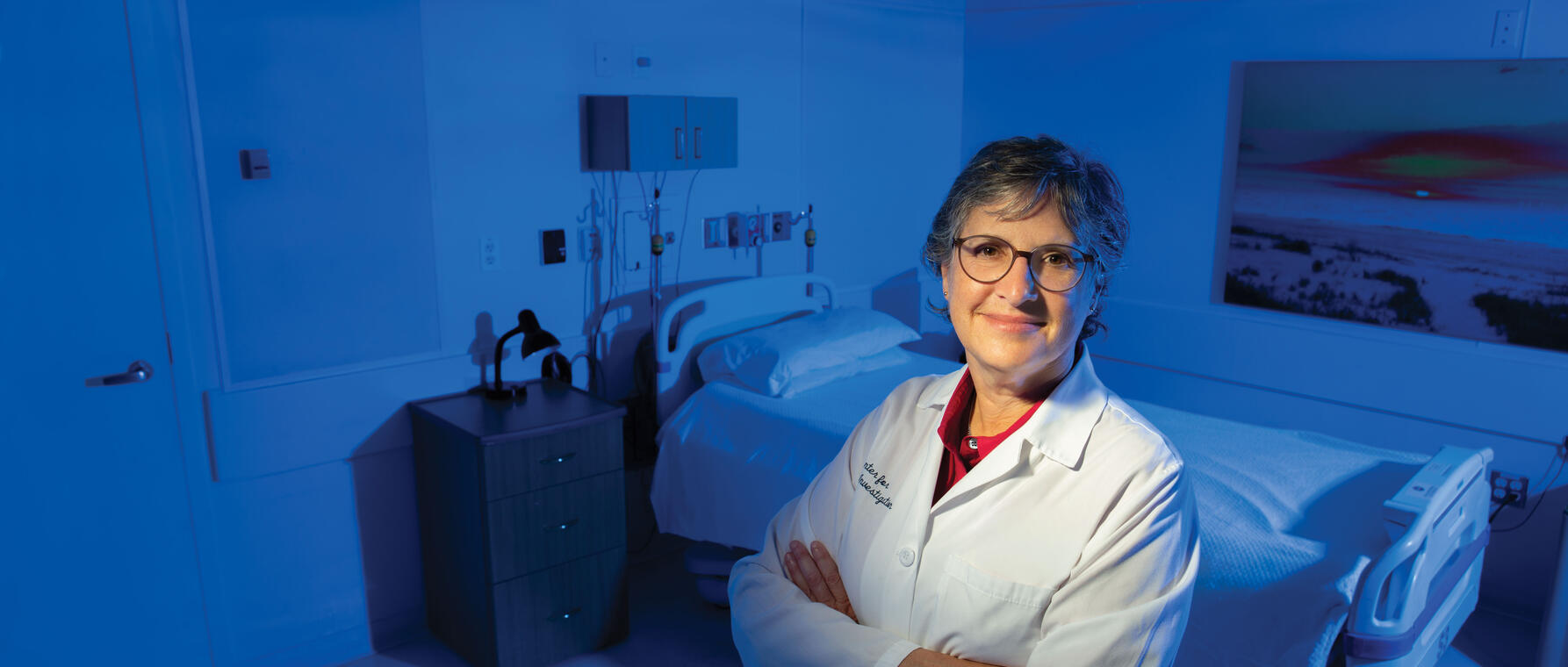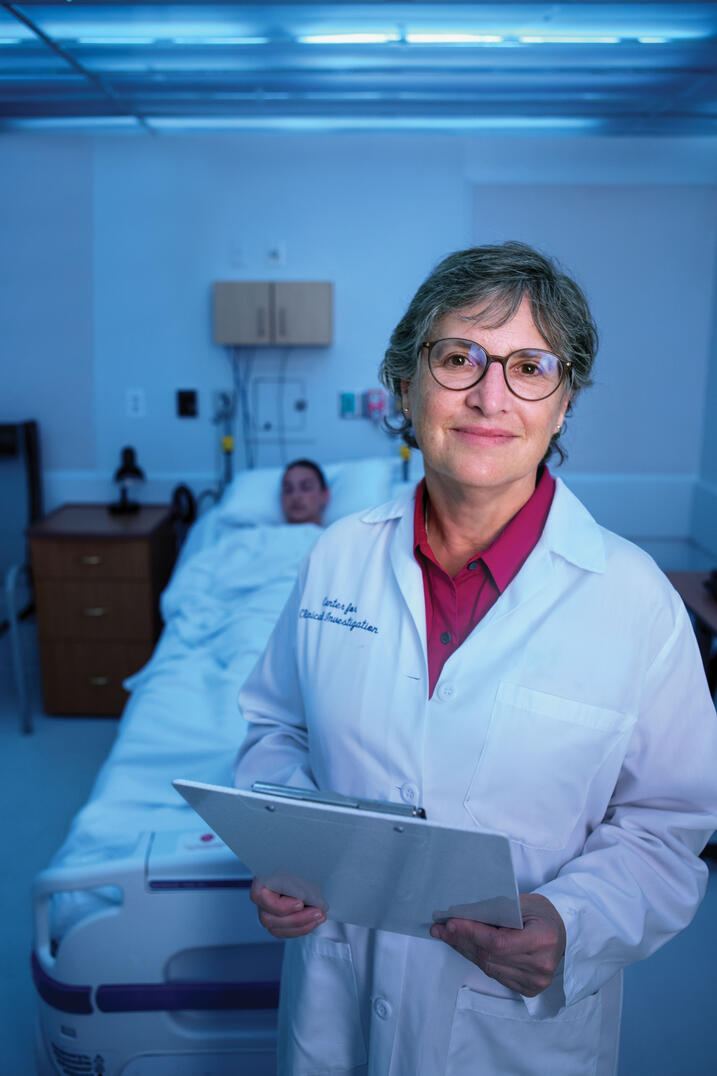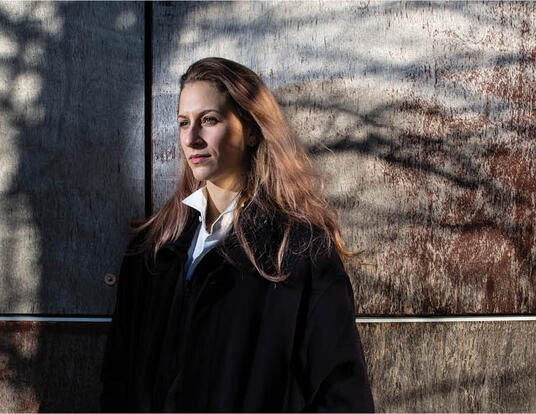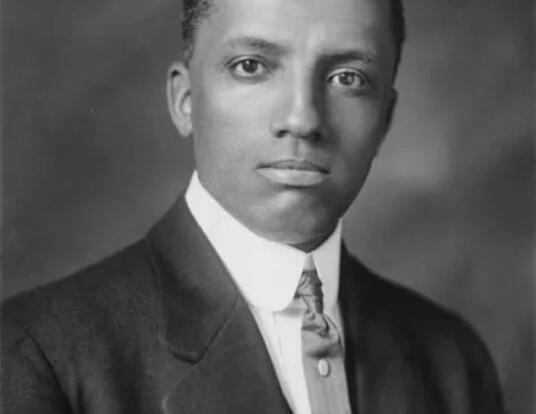Bedtime Story
Elizabeth Klerman fills in the narrative of how sleep works—and what happens when we don’t get enough

"Beth, what's going on?!" Elizabeth Klerman’s cousin said with concern as their car started to veer across the lanes of the highway. The two were driving to see April 2024’s solar eclipse, visible over parts of the US, Canada, and Mexico. Klerman had fallen asleep at the wheel.
“It was one of the most terrifying experiences I’ve ever had in my life,” she says. “I was not aware I’d fallen asleep. If I’d been alone in that car, I would not have known until I hit a rumble strip—or a tree. I knew I was sort of tired, and I thought, ‘Oh, I can last another half hour when we’re gonna switch.’ Nope.”
If anyone should be a good judge of when and how much to sleep, it should be Klerman, MD/PhD ’90. A professor at Massachusetts General Hospital’s (MGH) Department of Neurology, and a faculty affiliate of Harvard Medical School’s (HMS) Division of Sleep Medicine, Klerman’s three decades of painstaking research shed light on the way sleep impacts physiology, from cognitive performance and subjective alertness, to hormones, blood pressure, and renal function. As her own experience exemplifies, Klerman contends we’re almost certainly not getting enough rest, we probably don’t know how tired we are, and our sleep debt is affecting our work and health.
No Mistake
When confronted by sleep skeptics, Klerman offers a quote from the late Allan Rechtschaffen, a founder of the field of sleep research and director of the University of Chicago Sleep Laboratory for over four decades.
"He said, ‘If sleep doesn’t serve an evolutionary purpose, it’s the greatest mistake evolution ever made,’” she remembers. "If you think about it, the key things that usually drive evolution are sex, eating, and reproduction. Also defending yourself. And you don’t do any of those when you’re asleep. So evolutionarily, sleep must be doing something, because otherwise, sleep wouldn’t still occur. Evolution would have eliminated it if it weren’t beneficial.”
It turns out that sleep does nearly everything, shaping “immune function, metabolism, memory, learning, and other vital functions,” according to HMS’s Division of Sleep Medicine. The impact of sleep deprivation on personal and public health is similarly wide-ranging. A 2023 article in the British medical journal, The Lancet, asserted that sleep deficiency “adversely affects health across the entire lifespan, quoting data from the US Centers for Disease Control showing that “the prevalence of less than 7 [hours] sleep per 24-[hour] period overlaps with poor general health, poor mental health, poor brain health (i.e., increased stroke), obesity, and high blood pressure.” The authors called for sleep “to be promoted as an essential pillar of health, equivalent to nutrition and physical activity.”
The economic costs of sleep debt are no less daunting. “Why Sleep Matters,” a 2016 study by the Rand Corporation, reported that “lack of sleep among the US working population is costing the economy up to $411 billion a year, which is 2.28 percent of the country’s GDP.” If workers increased “nightly sleep from under six hours to between six and seven hours,” the authors wrote, the nation could recoup $226.4 billion in lost productivity.
The Rhythm of the Night
When and how long we sleep is primarily determined by two factors. The first, which Klerman has studied extensively throughout her career, is circadian rhythms, the sleep-wake cycle that helps determine when we feel alert or sleepy based on the time of day. In humans, the circadian clock is located in the suprachiasmatic nucleus of the brain’s hypothalamus. The clock receives information about light from the eyes and uses it to coordinate the timing of bodily processes. “If you’ve ever had jet lag,” Klerman says, “you know that you’re awake when you don’t want to be awake, and you’re sleeping when you don’t want to be sleepy, because your circadian clock is saying, ‘Oh, it’s time to be awake,’ or ‘It’s time to be asleep.’”
The second factor is homeostasis—basically, how long you’ve been up. “The longer you’ve been awake, the more likely it is that you’re going to fall asleep,” Klerman explains.
For the most fortunate of us who don’t do shift work, or have infant children or excitable animal companions, the circadian clock and homeostasis align. We work through a “normal” waking day and feel tired just as our circadian clocks tell us it’s time to settle down. Light is the most potent stimulus of the circadian system—it’s why clinicians recommend leaving blue light-emitting smartphones and other devices out of the bedroom at night. But in human beings, the circadian clock actually promotes wakefulness toward the end of the day, when the sun has often set. Similarly, it promotes sleep in the early hours of the morning. “The hypothesis is that the circadian system’s apparently paradoxical signals—promoting wake toward the end of waking and sleep toward the end of sleeping—enable consolidated sleep and wake episodes,” Klerman says.
No one is 100 percent sleep efficient. To get 7.5 or 8 hours of sleep, you need to be in bed for more than 8 hours.
—Elizabeth Klerman
How Much Is Enough?
The question of how much sleep humans need has been batted about for decades. Klerman, in collaboration with the Dutch researcher Derk-Jan Dijk, then at Boston’s BrighamandWomen’s Hospital, addressed this in 2007. The two researchers recruited healthy younger and older participants with no sleep disorders. Participants were asked to keep track of when they went to sleep and when they awoke for three weeks before the inpatient portion of the study, establishing a baseline average of the rest they were getting. “People were sleeping on average anywhere between 6.5 and 10 hours,” Klerman says. “Then they came into the lab.”
The first night, Klerman and Dijk had participants keep to their habitual sleep duration and timing, monitoring brainwaves, eye movements, and muscle tone (“polysomnography”). The next day, their sleepiness was measured with the multiple sleep latency test (MSLT)—four or five scheduled nap opportunities, each lasting up to 20 minutes, spaced two hours apart throughout the day. If they did not fall asleep within the 20 minutes, the trial ended. If they did, they were awakened after they fell asleep so as not to spoil the next test. “That first day, some of the people were falling asleep before the technician had left the room,” Klerman says.
For the next three to seven days, the researchers dramatically expanded the participants’ sleep opportunities. “People got twelve hours of sleep opportunity during the night, and then they were awake for four hours, and then four hours of another sleep opportunity,” Klerman explains. “They were not allowed out of bed during those twelve hours or four hours—no phones, lights, reading, or knitting—because we just wanted to see how much sleep they got.”
Many of the participants had come into the study confidently claiming they got plenty of sleep, all they needed. But on the first day of expanded sleep opportunity, younger people in particular crashed. “Everyone slept more, particularly the people in the 18 to 30 age range, who slept on average for 12.5 hours,” Klerman reports.
Those who came into the study sleeping on average eight or nine hours a night slept more on the first night, then quickly reverted to their mean. But those who had been sleeping six or seven hours needed days of increased sleep before finding a new homeostatic level—slightly under eight hours for older participants, slightly over eight hours for the young.
Klerman says the study demonstrates that, to get enough sleep, you need enough opportunity. “No one is 100 percent sleep efficient,” she says. “To get 7.5 or 8 hours of sleep, you need to be in bed for more than eight hours.”
More than that, Klerman says the research shows it’s not possible to oversleep.
“Believe me, you can overeat,” she says. “Give me a piece of chocolate cake at almost any time of day. I will eat it. But this study is strong evidence that you cannot oversleep if you’re bored. If you could sleep when you’re not tired, these people would have slept, rather than stay awake for multiple hours in the dark with nothing to do, and their MSLTs wouldn’t have changed. But by the end of the study, almost no one was falling asleep on the MSLTs.”

Like a Sneeze
Klerman’s research shows how much sleep we probably need—and that most people probably fall short. But what’s the impact on cognition when we’re deprived of sleep or when our rest comes at odd hours?
When the US Air Force Office of Scientific Research wanted to know the answer to that question, it funded Klerman and her colleagues. “They were thinking about what happens if personnel are awake for long periods of time and then get a lot of sleep, but they’re effectively not on a 24-hour day because they’re awake for 24 hours, and then we let them sleep,” Klerman explains. In other words, the AFOSR wanted to know what happens not only when service members are sleep-deprived but also when opportunities for sleep fall outside of normal circadian rhythms.
Klerman performed a study based on a 42.85-hour day, with 10 hours of sleep opportunity every period—equivalent to sleeping 5.5 hours during a normal 24-hour day. “The experiment was designed so that the people slept for 10 hours under baseline, under the chronic sleep restriction conditions, and under recovery,” Klerman says. “Five and a half hours is not that far off from what lots of people do in real life.” The 42.85-hour day also desynchronized the internal circadian rhythms from behaviors such as sleep/wake, and mood, and performance.
The researchers found a difference in the quality of participants’ sleep depending on what part of a normal day the opportunity occurred. “In some circadian phases, they slept better than others,” Klerman says. “So, if those 10 hours were scheduled during the usual waking day—the equivalent of 8:00 a.m. to 6:00 p.m.—they didn’t sleep as well as if they were scheduled from 8:00 p.m. to 6:00 a.m.”
If you are waking up with an alarm clock, by definition, you are not getting enough sleep.
—Elizabeth Klerman
Over the course of a month, the chronic sleep deprivation and forced desynchrony did indeed degrade participants’ performance on a range of tests, including those that measured reaction time, insight, and computation skills. But the results differed based on when the tests were administered.
“Even after three weeks on this protocol, people did really well on the tests for the first six hours after they woke up,” Klerman says. “That’s when they would say, ‘See, I got enough sleep.’ But after that first six hours, wow, did they deteriorate quickly. So, there’s this short-term recovery from sleep that can function even when you’re really sleep deprived, but it doesn’t last.”
Even more surprisingly, participants’ subjective perceptions of sleepiness or alertness showed no correlation with their performance on cognitive tests. “Every time we measured performance, we also asked about alertness—so, we know the relationship on a test-by-test basis,” Klerman says. “The graph we got looked like a sneeze. The people who said they felt awake and alert performed no better than those who said they were tired. There was no relationship between self-reported alertness and actual performance.”
The results, Klerman says, provide evidence that the brain has a difficult time with self-assessment, particularly when tired—just as Klerman did on her drive to see the solar eclipse. “If someone tells me they’re tired, then I believe them,” she says. “But if they tell me they’re not tired, I don’t believe them. And the correlation is worse in people who are chronically sleep-restricted.”
Previous research had documented the cognitive impact of sleep deprivation, but Klerman says the study’s real breakthrough was in establishing for the first time the three independent factors related to sleep that influence cognitive performance and subjective alertness: circadian rhythms, the length of a waking episode, and sleep debt (chronic sleep restriction). “These might seem obvious, but no one had ever shown before that there were these three impact factors that work together to influence cognition and our perception of alertness,” she says.
Take the Time.
Leave the Alarm Clock.
Despite an increased interest in sleep from medical researchers and the public, Klerman says there’s no magic pill on the horizon that will help people get a good night’s rest. That’s the bad news. The good news is, most folks don’t need one.
“Why should you take a medication for something that you can do by yourself?” she asks. “Give yourself time to sleep—at least 8.5 hours of opportunity to get a solid eight hours of rest.”
Carving out that time may not always be possible for those who live with children or animals, work multiple jobs, or do shift work. For the rest of us, Klerman recommends settling down to bed rather than staying up late to watch a horror movie, check social media or the news, or do the bills. And, if at all possible, ditch the alarm clock.
“The German chronobiologist Till Roenneberg, who’s a very famous sleep researcher, compares sleep to a washing machine,” she says. “Would you turn off a washing machine before the rinse cycle is over? Then why would you want to wake up before your body tells you to? That’s why, if you are waking up with an alarm clock, by definition, you are not getting enough sleep. Also, if you are still tired after being in bed for eight or more hours or if your bed partner says you snore loudly, stop breathing during sleep, or kick badly, please talk with your doctor about whether you have a sleep disorder.”
In the tradition of “physician heal thyself,” Klerman puts the knowledge she creates into practice in her own life.
“When I give talks about sleep, someone often says, ‘Well, how much sleep do you get?’ I tell them, ‘Eight hours. And I’m in bed for eight and a half hours.’ I’m a busy person, but I’m in bed at 9:45, I read for 10 to 15 minutes to let my body calm down, turn off lights at 10:00 p.m., and sleep until I wake up. Usually without an alarm clock!
Join Professor Elizabeth Klerman at noon ET on Wednesday, October 22, 2025, for “Why Sleep Matters More Than You Think,” a Harvard Griffin GSAS online discussion on why we need sleep, the serious health and economic consequences of sleep loss, the impact of technology on sleep, and much more. Register and submit your questions for Professor Klerman today!
Photos by John Soares
Get the Latest Updates
Join Our Newsletter
Subscribe to Colloquy Podcast
Simplecast





